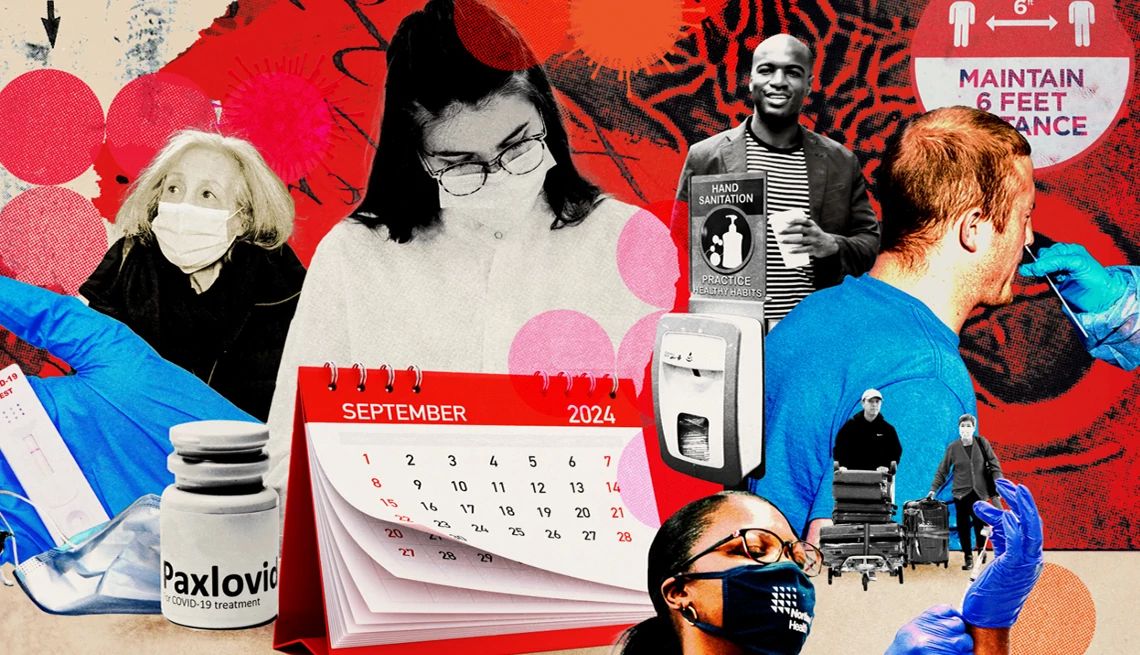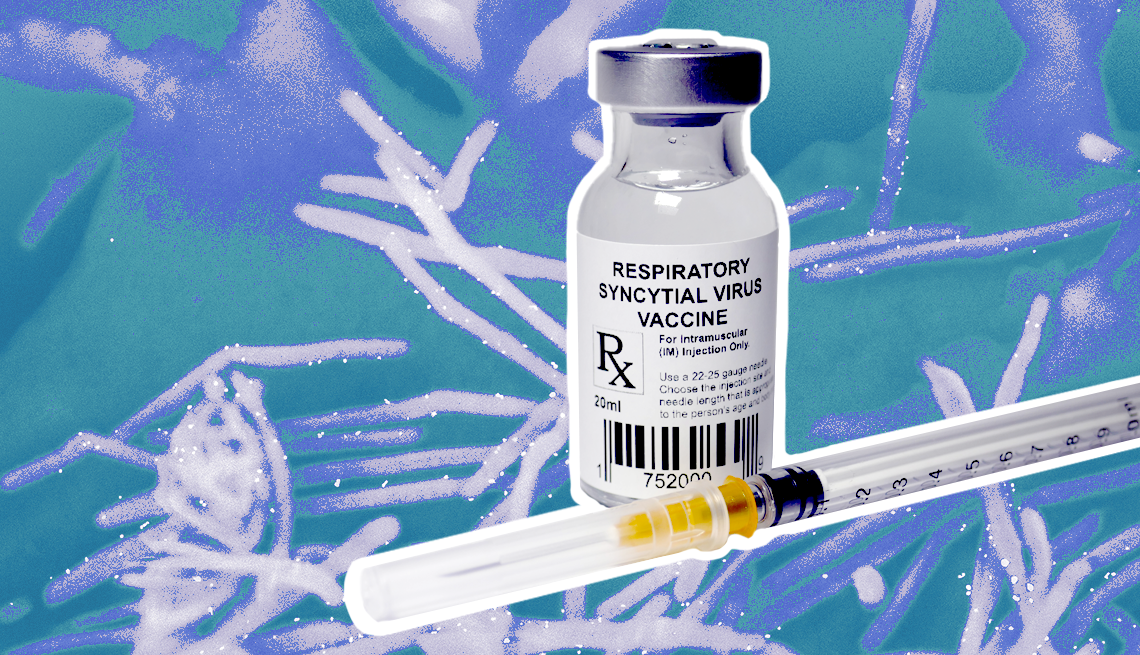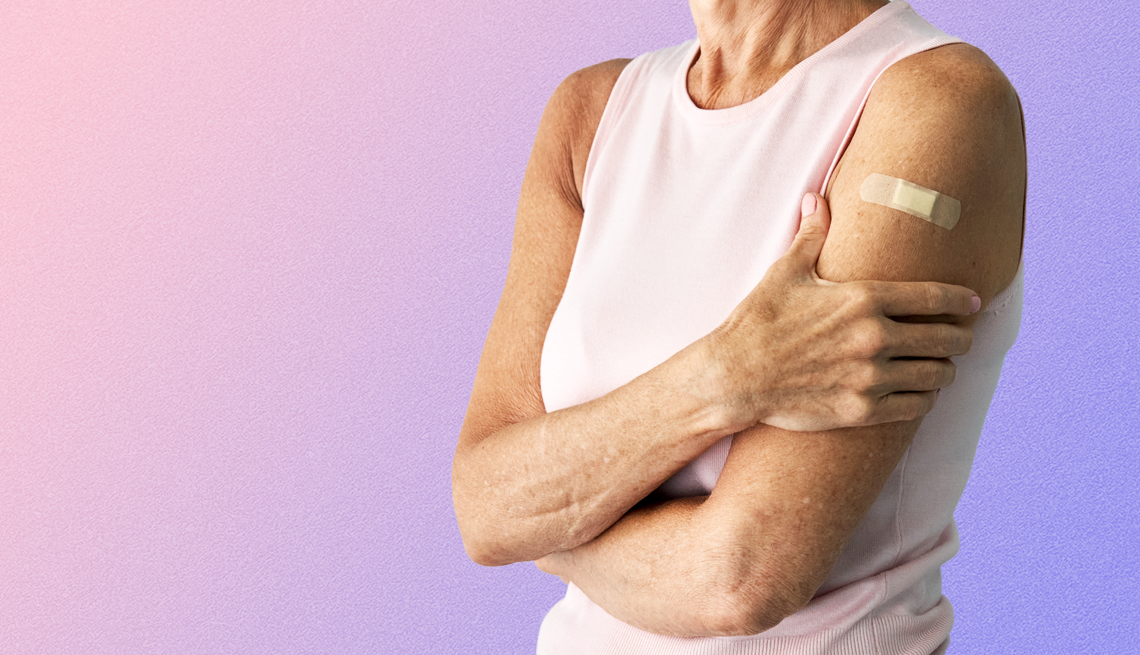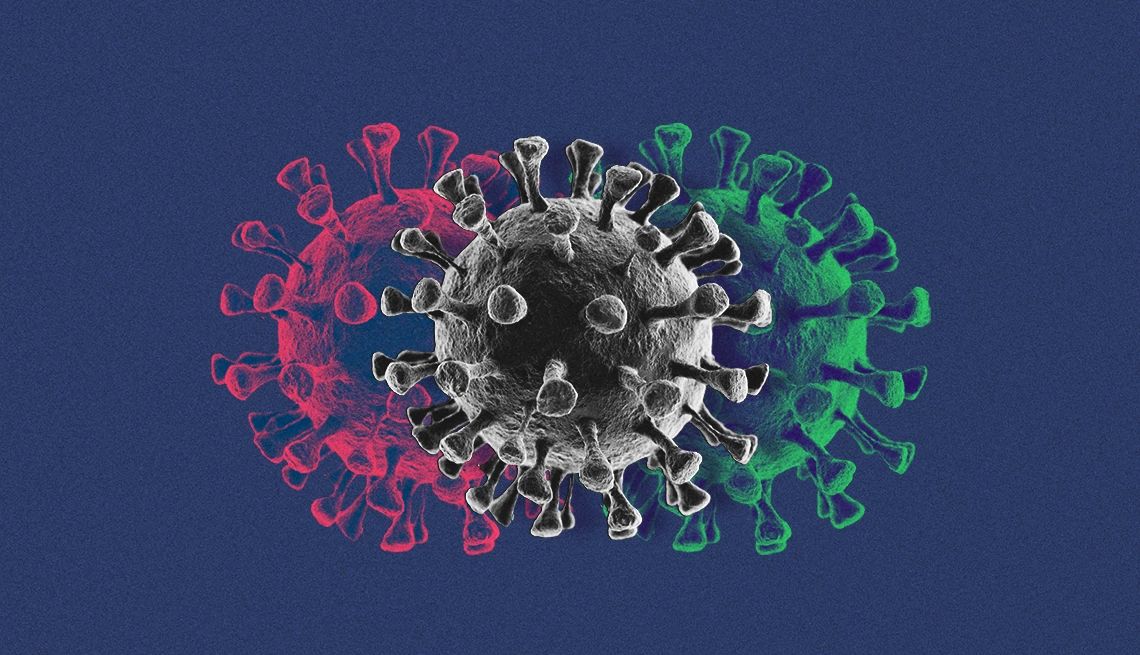AARP Hearing Center

Newly updated vaccines that target more recent versions of the coronavirus are now available in pharmacies and clinics nationwide, and health officials are recommending that everyone age 6 months and older get one to reduce the likelihood of developing a severe case of COVID-19.
But for some people, getting the vaccine at no cost may come with more hurdles than in previous years. The Bridge Access Program, which the Centers for Disease Control and Prevention (CDC) launched in 2023 to cover the cost of the COVID-19 vaccine for uninsured and underinsured individuals, has ended, leaving millions of adults without a safety net.
While most U.S. adults age 65-plus get health insurance through Medicare, an estimated 457,000 people 65 or older are uninsured, according to a report from the health policy nonprofit KFF. What’s more, research published in 2020 found that almost 1 in 10, or about 6 million people, between the ages of 50 and 64 in the U.S. had no health insurance in 2018.
So what can people without insurance do to avoid paying upwards of $200 out of pocket for a shot this season?
“Be sure to be in touch with your public health department or a community health center,” CDC Director Mandy Cohen, M.D., said during a Sept. 5 AARP tele-town hall. “We just released additional dollars in funding” — $62 million, according to Cohen — “so they could be able to purchase vaccines and offer them for free as well.”
You can use the National Association of County & City Health Officials’ (NACCHO) health department directory to contact one in your area. AARP also has state-specific vaccine guides that can help you find a location near you to get a COVID-19 shot.
Find COVID-19 Vaccines in Your State
AARP's 53 state and territory COVID-19 vaccine guides can help you find vaccines near you and provide the latest answers to common questions about costs, eligibility and availability.
Even with these additional funds, however, it’s not enough to get shots into the arms of all the uninsured and underinsured, says Lori Tremmel Freeman, chief executive officer of NACCHO. “The federal program is meant to provide some help, but a lot of these local health departments, particularly, simply don’t have the funding to continue to provide free vaccines on their own,” says Freeman, who explains that there are 3,300 health departments nationwide, “and they all do things a bit differently.”
Some centers may be able to cobble together the necessary funding, Freeman adds, but the people who will be impacted most by this patchwork program are “always the most vulnerable.”
“[They] are often the same ones that suffer from underlying health conditions, that are at higher risk, that don’t have normal access to a provider, perhaps, or services,” Freeman says. “And so it’s almost like a double insult to that group that’s already vulnerable, and you’re just sort of exacerbating the issue by not having vaccine readily available.”
Freeman says those reaching out to their health department about the updated COVID-19 vaccine should ask if it’s available, what it costs and what’s required to get the shot.
Additionally, COVID vaccine manufacturer Pfizer said that it will have a vaccine assistance program for people who cannot pay out of pocket for this year’s shot. The company told AARP that in the fall, eligible uninsured individuals 12 and older can access Pfizer’s vaccine either “at participating retail pharmacies through the Pfizer Retail Vax Assistance” or “at institutions participating in Pfizer’s Institutional Patient Assistance Program (IPAP).” Check PfizerRxPathways.com periodically for updated information, the company said in a statement.





































































More on Health
What to Know About the Tdap Vaccine
Details on what the shot does — and when you need itThese Are the 8 Vaccines You Need After 50
Are you up to date on all the recommended vaccines?
What It’s Like to Catch COVID Over and Over
He’s had four bouts so far, and he says it has changed himRecommended for You